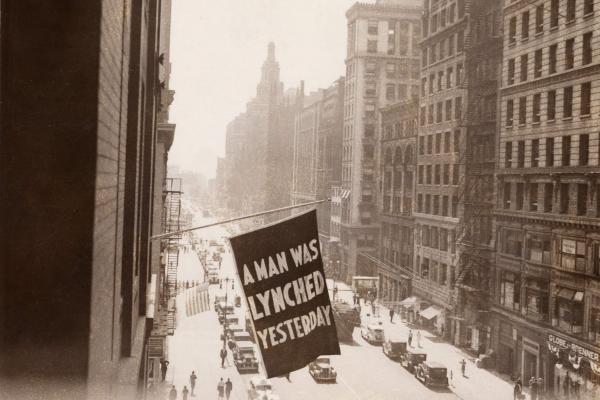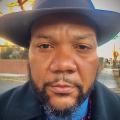As a Black man raising two Black boys, I have had many fitful nights thinking about the slaughter of Black lives. Lives that could be theirs or mine. But more than the uncertainty outside my door, what has kept me up at night is a question repeatedly posed to me by my 5-year-old son. It is a question that causes me to worry about the souls of Black children.
He is an inquisitive and chatty child. He wakes up talking before the sun rises and mumbles as he dozes off at night. Watching movies with him can be frustrating because of his litany of questions and commentary, albeit usually amusing and insightful. His perspective is always edifying. Whenever he poses a question, I select my words carefully because no matter what I say, it’ll be met with a series of follow-ups frequently analyzing my response.
“Daddy, why are white people so evil and mean to Black people?”
The first time my son asked this, I quickly reminded him of the white people in his life who are good and loving to him.
He didn’t skip a beat.
“Okay, why are SOME white people evil and mean to Black people?”
In subsequent months, I have wrestled with answering his question in a way that honors him and his view of the world. It troubles my head, heart, and soul to know I am raising children in a world where they might think a whole class of people are evil and mean to people like them.
I often invoke Frederick Douglass, who attended our church, for whom our meeting hall is named and where a bronze nameplate is affixed on the pew where he worshipped. Douglass is a hero of my son and he frequently asks us to read him a picture book about the man’s life. I remind him that yes, some white people did terrible things to Douglass and other enslaved people. But there were many that aided the freedom cause. I also remind him that Douglass put his faith in God. He didn’t just pray on his knees with his head bowed. Douglass also prayed with his feet and eyes wide open. Just like Douglass, God calls us, in our own unique ways, to put our faith into action.
This usually buys me a couple of days, maybe a week. But his initial query always resurfaces.
At night when we pray as a family, I remind him and his brother that the Creator left a part of themselves in all that has been created, and the presence of the Divine is always with us.
While I find it hard to see the presence of the Divine when I watched the video of Rodney King being beaten, Eric Gardner suffocating, Sandra Bland being harassed, Ahmaud Arbery valiantly fighting for his life, or watching the ecstatic look in Derek Chauvin’s eyes as George Floyd called out for his momma, I know that God is there. Not in the act of killing, but in the act of liberation and of awakening.
God’s presence can be felt and heard in the call to stand up for justice and mercy among the marginalized in this and every society. It is the same call that united enslaved Africans in the hulls of ships and slave-holding properties in the Americas. Despite their many linguistic, ethnic, religious, and political differences, they were united in their collective struggle for survival, justice, and freedom. This isn’t to say they always acted in unison, but they knew that their fates were inextricably linked and their faith in the faithfulness of God bound them together.
How do I explain this to a 5-year-old?
As protests swept our nation in the wake of George Floyd’s lynching, my stomach churned as I lay awake at night anticipating how I would respond the next time the question was posed. That angst led me to make signs with my oldest son saying, “A Man Was Lynched Yesterday,” which are planted in our front yard and affixed to our back door facing the alley. It is also what led me to decide one morning to take one of those signs and march down the middle of the streets in my neighborhood in protest.
I sent a few text messages to friends inviting them to join and asked my wife and sons if they wanted to come along. I had no plans to compel anyone to come along, until my oldest son said he didn’t want to come because he was afraid what happened to George Floyd would happen to us.
I wasn’t expecting that. I wanted to cry and scream in rage.
I told him I would hurt somebody if they ever tried to do that to him. I wanted to hurt somebody just to show him I would.
Instead, I told him we will not live in fear.
I said, “put on your shoes, we’re marching.”
I’ve never been more scared for my son, but I knew this is what we had to do.
His first steps were tentative, and he refused to walk with me in the middle of the street. He dragged his feet and trailed behind. But as we stood in that corner less than three miles from the White House and U.S. Capitol with cars and trucks honking and drivers throwing up their fists, I could feel his unease fading.
“We are not alone,” I intoned, while rubbing his back. “You are not alone.”
“I know,” he said stoically.
Over the following five days our numbers grew. On day three, a white family with two sons the same ages as my own showed up. My youngest shouted with glee and ran into the arms of his friend. The following day when Uncle Ray appeared, he jumped into his open arms.
I know that the day will come when he will ask me that vexing question, “Daddy, why are white people so evil and mean to Black people?”
I will probably remind him of his lived experiences, but I don’t know if it will ever be enough.
Got something to say about what you're reading? We value your feedback!





